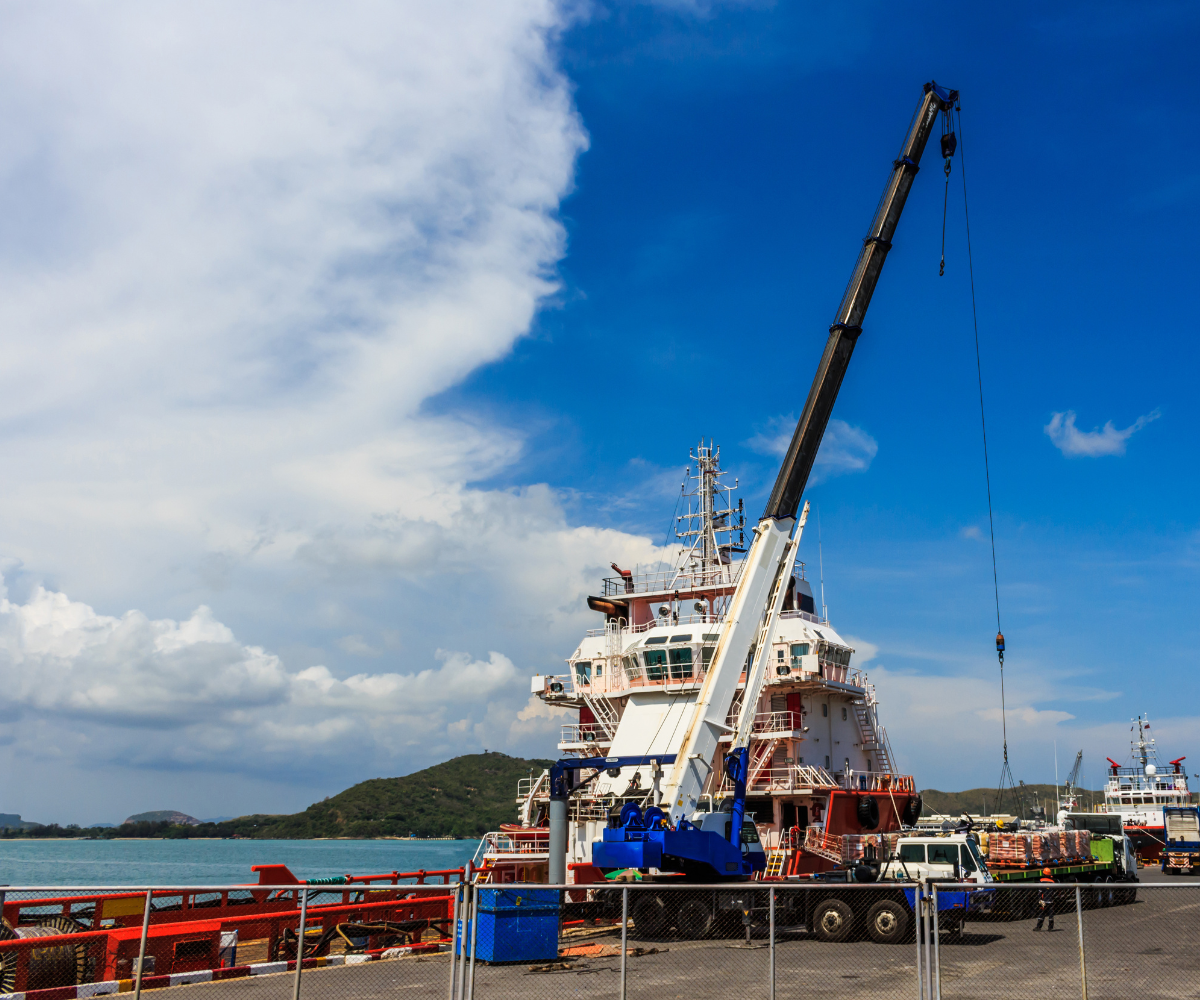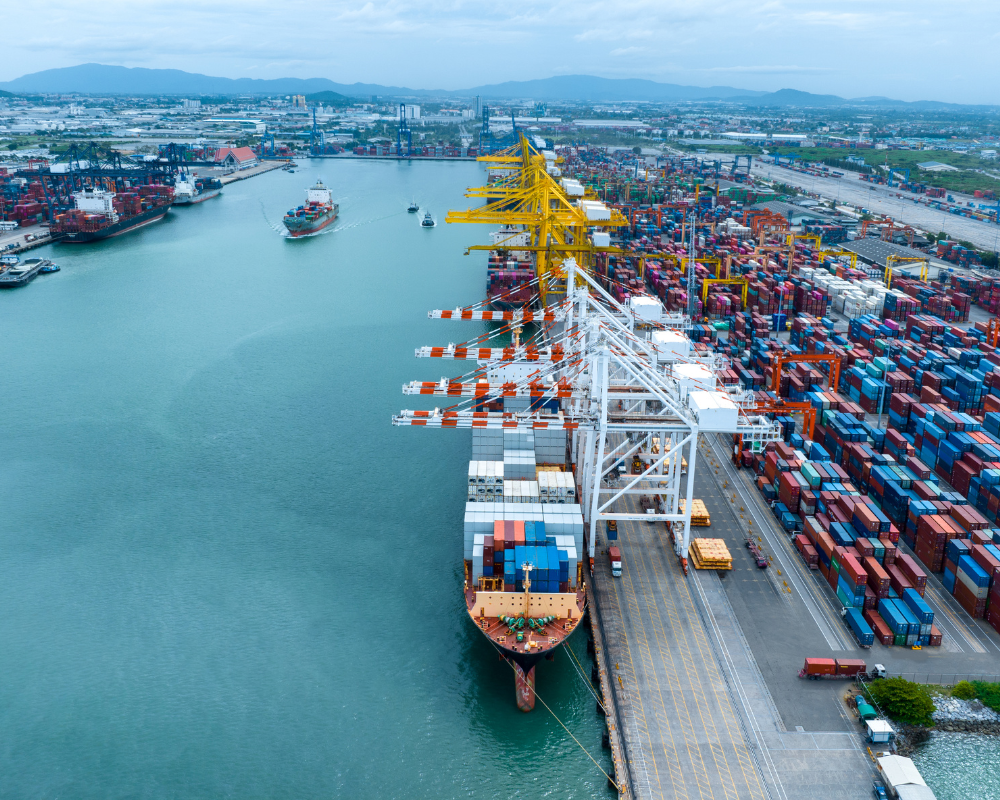
Blog
Compensating Maritime Crane and Cargo Accident Injuries
Posted in Maritime, Maritime Injury
A port, harbor, or sea terminal can be a dangerous place to work. Heavy equipment, cranes, and cargo loading lines are all in use. Land-based cranes operate on docks, while ship-mounted cranes load freighters and container ships. These tools are essential to the maritime industry but often the cause of serious crane accidents and injuries.
Longshoremen are dock workers that run the loading and unloading operations from the shore, while seamen in service to the vessel will operate ship-mounted cranes. All of these maritime workers have legal protections that can provide compensation in the event of a serious injury.
What Causes Maritime Crane Accidents and Injuries?
Using a crane for cargo transfer means lifting several tons over the heads of workers. All equipment must be kept in safe mechanical condition, the operators must be skilled and well trained, and ground or ship crews must practice safe loading and unloading procedures.
Because of the inherently dangerous and complex nature of longshore work, there are many causes of serious accidents in the shipyard and terminal or on the dock. Some examples of common causes of crane and cargo accidents include:
- Operating a crane on land that cannot support the load
- Operator errors caused by switching from a land-based crane to a ship-mounted crane
- Lifting beyond the capacity rating of a crane
- Exceeding the ship’s cargo holding capacity
- Failing to account for wind, weather, and ground conditions
- Miscalculating the forces in play when the load is transferred to the ship
- Failing to set outriggers or balance the load during transfer
- Lack of training, supervision, or evaluation of crane operators
- Lack of inspections for mechanical problems and worn parts or cables
- Improper or delayed maintenance on cranes or equipment
- Lack of communication by crane operators or ground crews
Injuries Sustained In Cargo Loading and Crane Accidents
The forces in play when cranes are moving cargo are powerful. Each container or item might weigh hundreds or thousands of pounds. When accidents happen, injuries can be severe and fatalities often occur. When mechanical failures or operator error are partly to blame, injured longshoremen and their families may be entitled to additional compensation.
The types of injuries that are likely to occur while using cranes to move cargo, or when cargo shifts due to improper handling, include:
- Being struck by moving or swinging loads or cables
- Falling from the crane or ship
- Drowning or falling overboard
- Crushing from shifting loads or being in the path of loading
- Overuse or repetitive motion injuries
- Back, neck, or spine injuries
- Head trauma, bone fractures, joint damage
- Electrical shock or fires
- Exposure to hazardous materials or spills
- Exposure to biological hazards from materials or live animals
Compensation Available for Crane and Cargo Accidents and Injuries
When a maritime worker is injured in a crane or cargo accident, they face high medical bills, lost wages, and pain and suffering, or their family might be without a much-needed income. Compensation is available for maritime workers in a number of ways:
- Under state law as workers’ compensation: If you qualify for workers’ compensation, your employer’s insurance will cover your medical care and provide a portion of your wages while you recover, and it may provide short- or long-term disability payments.
- Under the Jones Act: If negligence played a part in causing your injury or your loved one’s death, then you may have the right to sue for compensation under the Jones Act. You and your maritime attorney must be able to prove that negligence occurred and played a part in causing your injuries or making them worse. If you qualify, you may be eligible for pain and suffering, lost wages and earning potential, and other compensation for losses you suffered as a result of the accident.
- Under the LHWCA: The Longshore and Harbor Workers’ Compensation Act is designed to cover those dock workers and cargo handlers who do not have workers compensation under state law. The LHWCA allows injured workers to receive coverage for medical bills, physical therapy, disability, and a portion of lost wages.
Which Attorneys Handle Maritime Cargo and Crane Accidents?
You will need an experienced maritime attorney to work with you and determine which laws apply to your case and what compensation you may be eligible to receive. Filing a claim under the wrong maritime law would be a waste of time and money. If you were injured in a cargo or crane accident, you can schedule a free consultation with us and pay only if you win your case.
Schechter, Shaffer, and Harris—Maintenance and Cure—are experienced offshore injury lawyers, helping injured maritime workers from across the country and around the globe to get the full and fair compensation they deserve. Contact us today for a free case evaluation and get reliable help with the financial side of recovery for you and your family.















